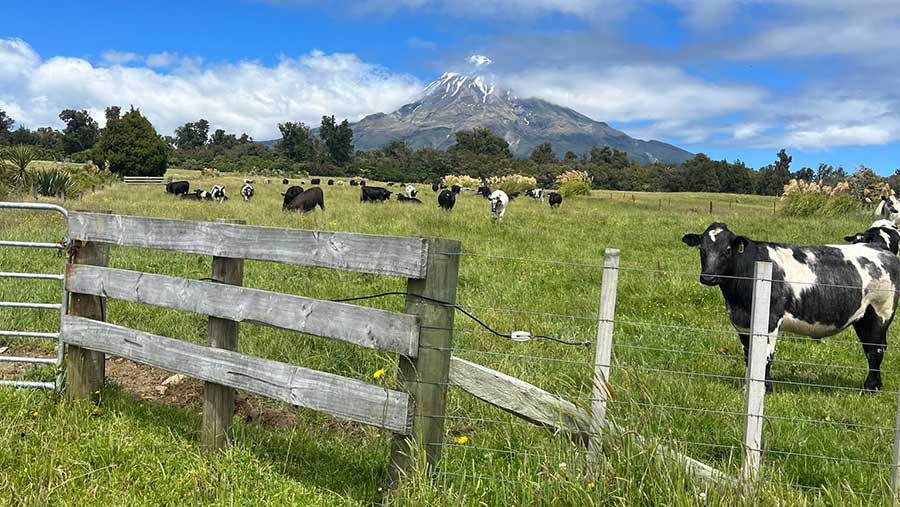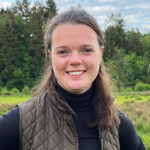Molly Biddell: Farming with nature is a hot topic in New Zealand too
 © Molly Biddell
© Molly Biddell I have just returned to damp, grey Britain after six sunny weeks in New Zealand.
Before the trip I was assured that “Scotland on steroids” would be the place for me – outrageously beautiful, glacial and tectonic scenery, bush habitats that are home to a smorgasbord of native trees and birds, and, importantly, farming galore.
And they were right, it was incredible. I spent time with fascinating farming businesses – hop growers, sheep and beef stations, dairy farmers, apple and kiwi growers and one of New Zealand’s biggest livestock processors.
See also: Molly Biddell – every farmer needs an ecologist
As an agricultural exporting superpower (producing enough food for 40 million people with a national population of just 5 million), farming is New Zealand’s economic backbone and impressively visible across the landscape – the irrigation systems blew my mind.
It was also exciting to see how some farmers are incorporating habitat restoration into their farming systems.
A combination of planting native scrub, natural regeneration and non-native mammal trapping is proving effective at restoring New Zealand’s unique species.
I met forward-looking farmers who are advocates of excellent food production working alongside excellent nature restoration.
But other than being passionate about wildlife, what is driving them to do this?
There’s no Countryside Stewardship paying them for public goods. Instead, there are sticks/regulations, such as new freshwater rules, which require farmers to fence their watercourses to keep animals (and their pollution) out.
Riparian planting along these exclusion zones creates corridors of native bush.
Then there are also exciting carrots/incentives. The livestock processing company Silver Fern Farms, for example, has launched a Net Carbon Zero by Nature programme, which pays a premium to farmers who fence off unproductive areas for bush regeneration and take on-farm actions to reduce their operational emissions.
Silver Fern is ahead of the curve, and it was awesome to see a food company working so collaboratively and carefully with their suppliers to create a genuine, positive impact.
Despite being 11,000 miles away, it was clear that the question of making space for nature, and ensuring it fits within farmers’ businesses, is as hot a topic in New Zealand as it is in the UK.

